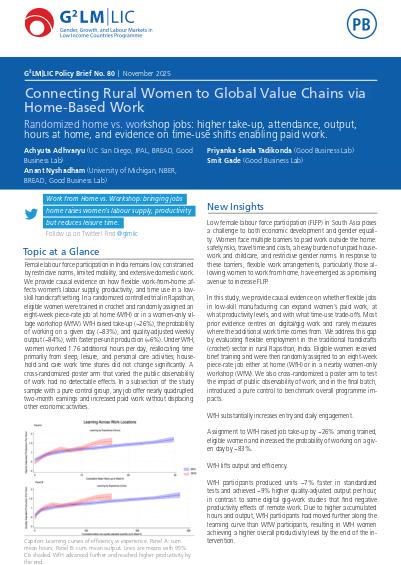Female labour force participation in India remains low, constrained by restrictive norms, limited mobility, and extensive domestic work. We provide causal evidence on how flexible work-from-home affects women’s labour supply, productivity, and time use in a low-skill handicraft setting. In a randomized controlled trial in Rajasthan, eligible women were trained in crochet and randomly assigned an eight-week piece-rate job at home (WfH) or in a women-only village workshop (WfW). WfH raised take-up (~26%), the probability of working on a given day (~83%), and quality-adjusted weekly output (~84%), with faster per-unit production (≈6%). Under WfH, women worked 1.76 additional hours per day, reallocating time primarily from sleep, leisure, and personal care activities; household and care work time shares did not change significantly. A cross-randomized poster arm that varied the public observability of work had no detectable effects. In a subsection of the study sample with a pure control group, any job offer nearly quadrupled two-month earnings and increased paid work without displacing other economic activities.
